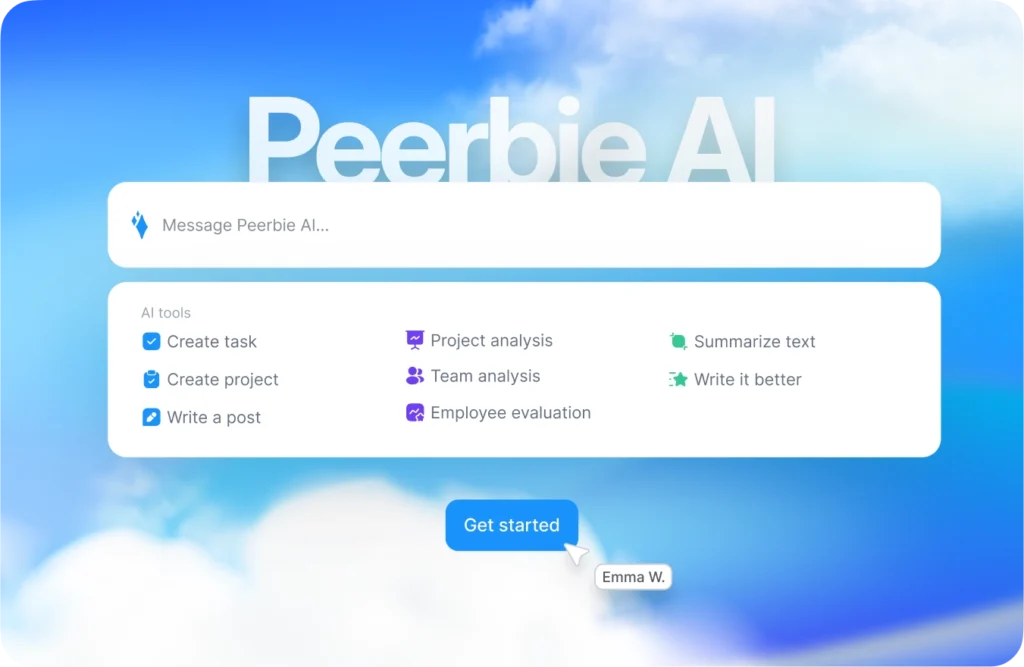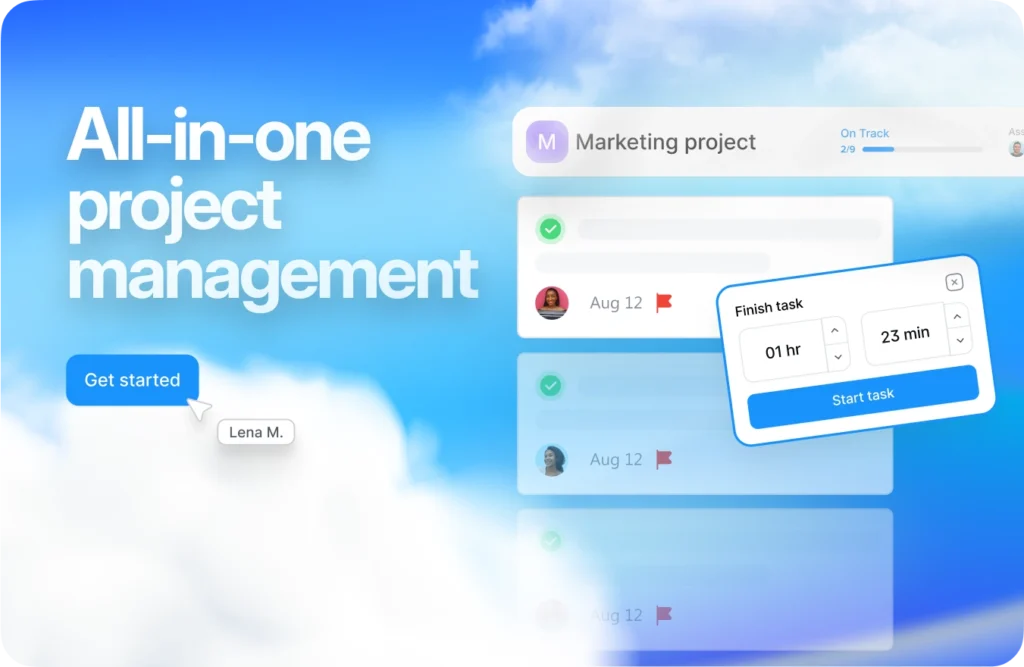How to Improve Project Collaboration: 5 Actionable Tips for Success

Project collaboration is at the heart of any successful venture. When team members effectively collaborate, they bring diverse skills, perspectives, and creativity to the table, driving projects toward success. However, fostering collaboration is often easier said than done. Challenges like communication gaps, unclear roles, and cultural differences can hinder progress.
In this guide, we’ll explore five effective ways to improve project collaboration. From understanding its significance to overcoming remote challenges and leveraging the right tools, this article will arm you with practical strategies to elevate your team’s productivity and morale.
What is Project Collaboration and Why is it Important?
Project collaboration refers to the process where individuals with different skills and expertise work together toward a shared goal. It’s about pooling resources, sharing knowledge, and complementing each other’s strengths to achieve a common objective.
Why does it matter? Effective collaboration ensures:
- Improved Efficiency: Tasks are completed faster and with fewer errors.
- Enhanced Innovation: Team members build on each other’s ideas.
- Greater Satisfaction: A supportive environment boosts morale and engagement.
Without collaboration, even the best plans can fall apart. In today’s interconnected workplace, fostering teamwork is no longer optional—it’s a necessity for success.

Common Barriers to Effective Collaboration
Despite its benefits, collaboration often faces hurdles, such as:
- Communication Breakdowns: Misunderstandings arise when information isn’t conveyed clearly.
- Unclear Roles: Without defined responsibilities, tasks may overlap or be neglected.
- Cultural Differences: Varied work styles and cultural norms can lead to friction.
- Technological Challenges: Outdated tools can slow down communication and task management.
Understanding these barriers is the first step to overcoming them and creating a cohesive team environment.
Who Should Collaborate With Whom?
Collaboration isn’t limited to internal team members. For projects to thrive, teams must collaborate with:
- Stakeholders: Include decision-makers early on to ensure alignment with goals.
- Cross-Functional Teams: Diverse perspectives lead to better problem-solving.
- Clients: Keeping clients in the loop ensures satisfaction and minimizes rework.
By fostering cross-functional and cross-level collaboration, projects can achieve well-rounded outcomes that cater to a broader audience.
When Are the Critical Times to Collaborate During a Project?
Timing is everything in project collaboration. Some critical phases include:
- Project Initiation: Brainstorming and defining goals with the team ensures clarity.
- Planning: Coordinating schedules, resources, and milestones reduces confusion.
- Execution: Regular check-ins help address roadblocks before they escalate.
- Review and Feedback: Post-project evaluations highlight lessons learned for future improvement.
Proactive collaboration at these stages keeps the project on track and boosts team morale.

5 Tips for Better Project Collaboration
1. Establish Clear Communication Channels
Effective communication is the backbone of successful collaboration. Use centralized platforms like Peerbie, Slack, Microsoft Teams, or Zoom to ensure team members can easily access information and communicate clearly. Establish communication protocols to prevent misunderstandings and confusion. Clear, concise, and regular communication fosters trust within the team. Scheduling regular meetings ensures everyone stays updated on progress and tasks. This reduces delays and minimizes complexity in the project. Ultimately, strong communication improves overall productivity and collaboration efficiency.
2. Leverage Collaborative Tools
Effective collaboration is impossible without the right tools. Platforms like Peerbie, Trello, Asana, or Monday.com simplify task assignments and tracking. These tools help teams organize workflows and prevent time waste. Additionally, choose tools that offer integration capabilities to connect with emails, calendars, and other systems. Using collaboration tools effectively ensures everyone can keep track of their tasks and see the bigger picture of the project. Selecting the right technology and prioritizing user-friendly tools are crucial for seamless teamwork. Not sure which tool to use? Explore our comparison of the top project management software to find the perfect fit for your team.
3. Set SMART Goals
Without clear goals, it’s challenging for team members to stay focused. That’s why you should set goals based on the Specific, Measurable, Achievable, Relevant, and Time-bound (SMART) criteria. For example, a goal like “Increase customer satisfaction by 10% within three months” helps the team plan collaboration more effectively. This approach links individual tasks to overall objectives. Additionally, SMART goals make success measurable, boosting team motivation. Involve team members in the planning process to make goals more realistic and achievable. Want a deeper understanding of SMART methodology? Here’s a full breakdown of what SMART goals are and how to set them.
4. Build Trust Within Teams
Trust is the foundation of effective collaboration. Encourage transparency and openness to create an environment where team members feel comfortable sharing their ideas. Clearly assigning tasks and responsibilities boosts trust among team members. Promoting constructive feedback supports idea exchange and ensures everyone contributes to the process. Additionally, leaders should set an example to foster trust within the team. When trust is established, collaboration becomes more creative and productive.
5. Encourage Feedback
Feedback is a critical element for continuous improvement and alignment. Encourage team members to provide feedback on processes and outcomes throughout the project. This helps identify not only mistakes but also opportunities for innovation. Regularly receiving constructive feedback enhances trust and transparency within the team. Additionally, when leaders actively encourage open feedback, it strengthens team engagement and participation. Establishing regular feedback mechanisms ensures that teams remain aligned with project goals. Looking to improve how your team shares feedback? Read our guide on how to give feedback to your manager for strategies that work both ways.

Measuring Collaboration Effectiveness
Evaluating the success of project collaboration is essential for continuous improvement. Here’s how you can measure its effectiveness:
- Productivity Metrics: Assess whether tasks are being completed on time and within the allocated resources. Tools like time-tracking software can provide insights into team efficiency. Want to improve how you track team progress? Here’s a list of the best task management tools to stay on top of performance.
- Team Satisfaction Survey: Conduct surveys to gauge team morale and satisfaction levels. Happy teams are often more collaborative and productive.
- Quality of Outputs: Examine the quality of project deliverables. Effective collaboration often results in higher-quality outcomes with fewer errors.
- Stakeholder Feedback: Seek input from clients or other stakeholders. Positive feedback indicates that collaborative efforts are aligned with expectations.
- Frequency of Communication: Regular updates and check-ins are a sign of healthy collaboration. Monitor how often team members communicate and the impact of these interactions on progress.
By leveraging these metrics, organizations can identify gaps in collaboration and implement strategies for improvement.
Overcoming Remote Collaboration Challenges
Remote work has become the norm for many organizations, but it comes with unique challenges that can hinder collaboration. For more tips on working effectively as a distributed team, check out our guide on remote team collaboration.
1. Communication Gaps: Time zones, language barriers, and cultural differences can complicate communication. To overcome this:
- Use tools like Peerbie, Zoom or Google Meet for real-time discussions.
- Create detailed documentation to ensure everyone is on the same page.
2. Technology Limitations: Not all team members may have access to reliable internet or advanced tools. Address this by:
- Providing necessary equipment and resources.
- Opting for lightweight, accessible software solutions.
3. Lack of Team Bonding: Remote teams often miss out on organic interactions. To foster camaraderie:
- Schedule virtual coffee breaks or team-building activities.
- Encourage informal chats through platforms like Slack.
By addressing these challenges head-on, remote teams can achieve the same level of collaboration as in-person teams.
How Can Leaders Encourage Teamwork in Remote Teams?
Leadership plays a crucial role in fostering collaboration, especially in remote settings. Here’s how leaders can step up:
- Promote a Shared Vision: Clearly articulate the project’s goals and how each team member’s role contributes to the bigger picture. This ensures alignment and motivation.
- Regular Check-Ins: Schedule one-on-one and team meetings to discuss progress, challenges, and feedback. This helps maintain accountability and a sense of connection.
- Celebrate Wins: Recognize and reward achievements, big or small. A simple acknowledgment can go a long way in boosting morale.
- Encourage Skill Development: Offer training sessions or resources to help team members enhance their skills. This not only improves individual performance but also benefits the team.
By taking these steps, leaders can create a collaborative environment where team members feel valued and engaged.
What Makes Up an Effective Project Collaboration Tool?
The right tools can make or break collaboration efforts. Here are the key features to look for in a collaboration tool:
- Real-Time Communication: Effective tools like Slack or Microsoft Teams facilitate instant messaging, video calls, and group discussions.
- Task Management: Platforms like Peerbie, Asana and Trello enable teams to assign tasks, set deadlines, and track progress.
- Integration Capabilities: Choose tools that integrate with existing systems like email, calendars, or CRM platforms. This ensures seamless workflow management.
- User-Friendly Interface: A complex tool can discourage usage. Opt for platforms that are intuitive and easy to navigate.
- Data Security: Ensure the tool has robust security features to protect sensitive project information.
An effective tool not only enhances productivity but also fosters a collaborative culture.
Improve Project Collaboration with Peerbie
Peerbie is a game-changer when it comes to project collaboration. Designed with user experience in mind, it offers features that make teamwork effortless.
Key Features of Peerbie
- Centralized Communication: Teams can chat, share files, and hold virtual meetings all in one place.
- Advanced Task Management: Assign, prioritize, and track tasks with ease.
- Customization Options: Tailor the platform to suit your team’s specific needs.
- Mobile Accessibility: Collaborate on the go with Peerbie’s mobile app.

Why Choose Peerbie?
Peerbie stands out for its simplicity and efficiency. Teams using Peerbie have reported significant improvements in project delivery times and overall satisfaction.
Whether you’re managing a small team or a large organization, Peerbie can help you achieve your collaboration goals.
Effective project collaboration isn’t just about working together—it’s about working smarter. By understanding the barriers, leveraging the right tools, and fostering a culture of trust and communication, teams can achieve remarkable results.
Remember, collaboration is a continuous process that evolves with each project. Implement the tips and tools shared in this article to unlock your team’s full potential and drive your projects to success.ges of modern project management and achieve success in reaching your target audiences.

